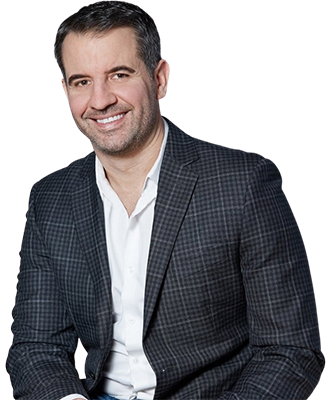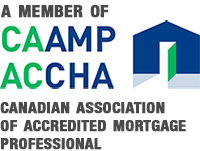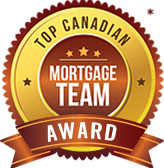


JESSE BRUN
Mortgage IntelligenceLicense #10428
Mortgage Broker (NB)
Mortgage Agent Level 2 (ON)

HELOCS Bad Credit Moncton
If you own a home in Moncton, you may have heard about HELOCS. HELOCS are a type of loan that allows homeowners to borrow money by using the equity in their home as collateral. HELOCS are typically used for large expenses, such as home improvements or debt consolidation. However, if you have bad credit, you may be wondering if you can still qualify for a HELOC. In this article, we will discuss HELOCS with bad credit in Moncton.
What is a HELOC?
Before we dive into the specifics of HELOCS for bad credit, let's first define what a HELOC is. A HELOC is a type of loan that allows homeowners to borrow money using the equity in their home as collateral. Equity is the difference between the value of your home and the outstanding balance on your mortgage. For example, if your home is worth $300,000 and you still owe $200,000 on your mortgage, you have $100,000 in equity.
HELOCS can be a great option for homeowners who need access to cash. The amount you can borrow with a HELOC is typically based on the amount of equity you have in your home. However, there are some factors that can affect your eligibility for a HELOC, such as your credit score and debt-to-income ratio.
What is Bad Credit?
Credit scores range from 300 to 900 in Canada, and a score of 650 or higher is considered good. However, if you have a credit score below 650, you may have trouble qualifying for certain types of loans, including HELOCS. This is because lenders view borrowers with low credit scores as being high-risk.
Having bad credit can be caused by a variety of factors, such as missed or late payments, defaults, bankruptcy, or high credit card balances. If you have bad credit, it's important to take steps to improve your credit score before applying for a HELOC.
HELOCS with Bad Credit
While having bad credit can make it more difficult to qualify for a HELOC, it's not impossible. Some lenders specialize in providing HELOCS to borrowers with bad credit. These lenders understand that not everyone has perfect credit and may be willing to work with you to find a solution.
Alternatives to HELOCS
If you have bad credit and are having trouble qualifying for a HELOC, there are other options available to you. One option is to work on improving your credit score before applying for a loan. This can include paying off outstanding debts, making all of your payments on time, and keeping your credit card balances low.
Another option is to consider a personal loan. Personal loans are unsecured loans, which means they don't require collateral. While personal loans may come with higher interest rates than HELOCS, they can be a good option if you have bad credit.
Finally, if you're a homeowner with bad credit, you may want to consider a secured credit card. Secured credit cards require a cash deposit that acts as collateral, which means they are easier to qualify for than traditional credit cards. Using a secured credit card responsibly can help you improve your credit score over time.
In addition to using HELOCS to pay for large expenses or consolidate debt, they can also be used to make home improvements. Homeowners in Moncton can use the equity in their homes to fund renovations and upgrades that can increase the value of their property.
Some common home improvements that homeowners use HELOCS for include kitchen and bathroom remodels, adding a new room or space, replacing roofing or siding, upgrading HVAC systems, or installing new flooring. These improvements can not only increase the value of the home but also improve the homeowner's quality of life.
When considering a HELOC for home improvements, it's important to keep in mind that the loan amount should not exceed the projected increase in the value of the home. This will help ensure that the investment is worth it and that the homeowner can recoup the costs when they eventually sell the home.
Our mortgage office can help homeowners in Moncton navigate the process of obtaining a HELOC for home improvements. We can assess the value of the home and provide guidance on what improvements may be the best investment for the homeowner's specific situation. We can also help with the application process and provide options for repayment terms that work for the homeowner's budget.
It's important to note that while HELOCS can be a useful financial tool, they do come with risks. If a homeowner defaults on the loan, they may be at risk of losing their home. It's crucial to carefully consider the decision to take out a HELOC and ensure that the repayment plan is manageable.
How Do You Apply for a HELOC?
If you're interested in taking out a HELOC in Moncton, the first step is to contact our mortgage office at (888)878-4660 or fill out the short form on the top left-hand side of our website. We'll work with you to determine whether a HELOC is right for your needs and help you through the application process.
Below is a list of words that are associated with getting a home mortgage loan. We are providing you the list along with their definitions to help your mortgage journey:
Lien: a legal claim against a property used as collateral for a debt.
Pre-approval: a process where a lender reviews a borrower's financial information and determines how much they are qualified to borrow.
Second mortgage: a type of mortgage where the borrower uses their home as collateral to take out a second loan.
Title search: a process in which a title company reviews public records to ensure that there are no outstanding liens or other claims against a property.
Fixed-rate mortgage: a type of mortgage where the interest rate remains the same for the entire term of the loan.
Adjustable-rate mortgage (ARM): a type of mortgage where the interest rate can change over time, typically after an initial fixed-rate period.
Debt-to-income ratio: a comparison of a borrower's monthly debt payments to their monthly income, used to determine their creditworthiness.
Appraisal: a process where a professional appraiser determines the value of a property.
Title: the legal right to own and use a property.
Home equity line of credit (HELOC): a line of credit that allows the borrower to borrow against the equity in their home.
Equity: the difference between the value of a property and the outstanding balance of any mortgages or other liens against the property.
Mortgage insurance: insurance that protects the lender in case the borrower defaults on the loan.
Homeowner's insurance: insurance that protects against damage to a home or other property, typically required by lenders as a condition of a mortgage loan.
Points: fees paid by the borrower to the lender at closing in exchange for a lower interest rate.
Interest-only mortgage: a type of mortgage where the borrower only pays interest on the loan for a certain period of time before starting to pay off the principal.
Home equity loan: a type of loan where the borrower borrows against the equity in their home.


